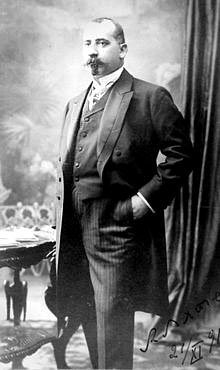
© Photo: wikipedia.org
Underwater archaeological research has been completed in Taukliman Bay (also known as Bird Bay) , located about 6 km northeast of Cape Kaliakra. Dozens of archaeological sites of great historical value have been located in its vicinity: caves used in..
Though known mostly as one of the closest associates of Vasil Levski and a dedicated fighter for national liberation, there was actually much more to Father Matey Preobrazhenski (1828–1875) than his revolutionary efforts. Little is known about..
A guidebook to the major Christian pilgrimage routes in the country was presented during the first national conference dedicated to pilgrimage tourism in Bulgaria, attended by Minister of Tourism Miroslav Borshosh, Metropolitan Anthony of Western and..
Underwater archaeological research has been completed in Taukliman Bay (also known as Bird Bay) , located about 6 km northeast of Cape Kaliakra. Dozens..

+359 2 9336 661
